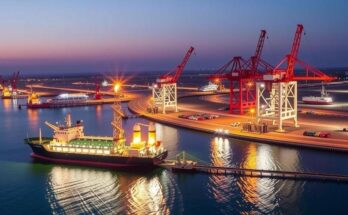Southeast Asian leaders have gathered in Laos for the ASEAN summit to discuss critical issues including the Myanmar civil war and territorial disputes in the South China Sea. New national leaders are participating, and the summit involves dialogues with global powers. Tensions in the region are anticipated to dominate discussions, yet the likelihood of significant resolutions appears slim due to prioritizing national over regional interests.
Southeast Asian leaders convened in Vientiane, Laos, for the annual ASEAN summit, focusing on critical issues such as the ongoing civil war in Myanmar and escalating territorial disputes in the South China Sea. The summit is expected to include dialogues with influential global powers, including China, the United States, and Russia, highlighting the competing interests in the region. As the summit unfolds, discussions are anticipated to address the humanitarian crisis in Myanmar, which has worsened since the military ousted Aung San Suu Kyi’s elected government in February 2021. The military regime has shown resistance to a proposed peace plan from ASEAN, despite agreeing to ceasefire intentions. This year’s meeting is particularly notable as it sees the first high-level representation from Myanmar in three years, with Aung Kyaw Moe, the Foreign Ministry’s permanent secretary, attending. In addition to the Myanmar crisis, ASEAN leaders will address maritime territorial conflicts with China, especially as multiple member states, including Vietnam, the Philippines, Malaysia, and Brunei, assert their claims in the South China Sea. Tensions have notably escalated recently, with incidents involving Chinese forces disturbing the stability in the region. New leaders, including Thailand’s Paetongtarn Shinawatra and Vietnam’s Prime Minister Pham Minh Chinh, will participate in the summit. However, Indonesian President Joko Widodo will not attend, delegating Vice President Ma’ruf Amin instead. Amid these discussions, the potential for substantive resolutions regarding both the Myanmar crisis and maritime tensions remains uncertain, especially as regional members may prioritize their bilateral relations with China over collaborative ASEAN interests.
The Association of Southeast Asian Nations (ASEAN) summit serves as a vital platform for member states and dialogue partners to address significant regional issues. The summit’s agenda often encompasses discussions on economic cooperation, security challenges, and environmental concerns. The current focus on Myanmar’s civil conflict and South China Sea territorial disputes underscores the broader geopolitical context in which ASEAN operates, marked by both internal challenges and external pressures from major power players seeking influence in Southeast Asia.
In conclusion, the ASEAN summit in Laos aims to confront pressing regional challenges, particularly the civil unrest in Myanmar and maritime disputes involving China. With new leadership across several member states and participation from global powers, the forum highlights the complex dynamics shaping Southeast Asian politics. However, the effectiveness of ASEAN in resolving these issues remains uncertain, given the competing interests of its members and their relationships with external powers.
Original Source: www.newsday.com




